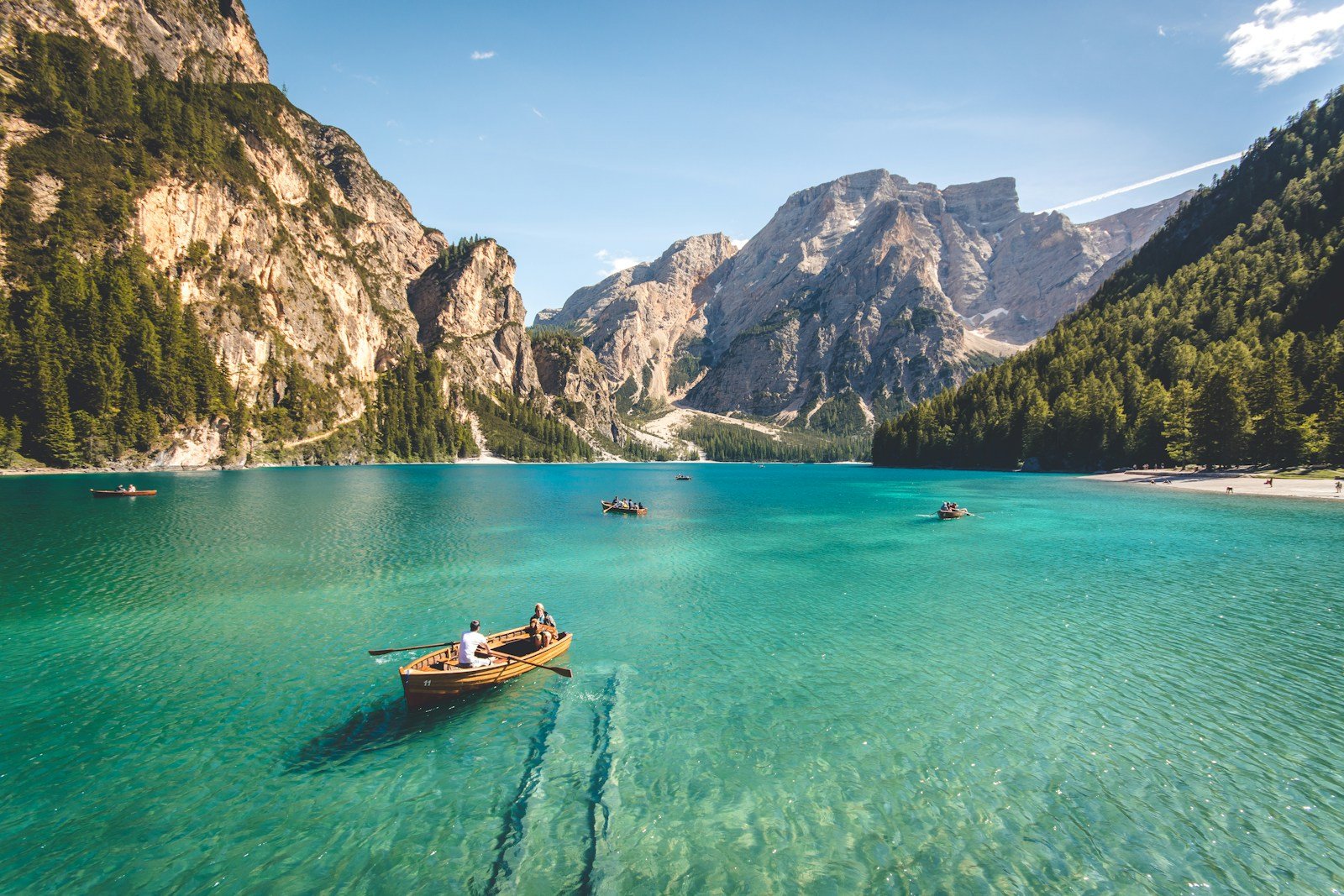Traveling and working remotely aren’t inherently unsustainable. In fact, they can be some of the most eco-conscious ways to live—when done with intention. The shift from daily commutes to flexible, location-independent work reduces urban congestion and lowers your personal carbon footprint over time. But without mindful choices, remote work and travel can still contribute heavily to environmental strain. Flights, energy use, single-use packaging, and digital pollution all add up.

The good news? You can maintain the freedom of a nomadic lifestyle while significantly reducing your impact. This guide walks you through every stage of your journey—planning, traveling, working, and living—so you can do it all with the planet in mind.
Travel Smarter, Not Harder
Choose Your Destination Wisely
Not all places are created equal when it comes to sustainability. Prioritize destinations that prioritize environmental stewardship, invest in renewable infrastructure, and promote low-impact tourism. Look for cities or regions with strong public transit, walkability, and local conservation efforts. Avoid overtouristed hotspots where ecosystems are already under stress.
Opt for Low-Impact Transportation
Air travel is one of the largest contributors to personal carbon emissions. When possible, replace flights with trains, buses, or even long-distance cycling. Even if you must fly, choose direct routes—takeoffs and landings are the most fuel-intensive parts of a flight. Consider carbon offsetting through reputable programs, but treat it as a supplement, not a substitute, for reducing your travel footprint.
Travel Light, Travel Right
Every extra kilogram increases fuel consumption. Pack only what you need, and choose multi-functional items. A single outfit that works for meetings, walks, and casual outings cuts down on laundry and space. Bring reusable containers, utensils, and a refillable water bottle. Avoid plastic packaging by shopping in bulk at local markets and bringing your own bags.
Make Your Stay Sustainable
Stay in Eco-Conscious Accommodations
Look for lodgings that prioritize sustainability. Check for certifications like Green Key, EarthCheck, or local eco-labels. These indicate real efforts—like solar power, water conservation systems, waste reduction programs, and local sourcing. Even small details matter: hotels that use refillable soap dispensers, composting toilets, or energy-efficient lighting are making a difference.
Conserve Energy and Water
Even in eco-lodges, your habits matter. Turn off lights when leaving a room. Unplug devices when not in use. Take shorter showers and reuse towels. If you’re staying in a private rental, use natural ventilation and sunlight instead of air conditioning or heating. Adjust your thermostat settings to be just comfortable—not excessive.
Respect Local Ecosystems and Communities
Avoid disturbing wildlife, stepping off marked paths, or taking natural souvenirs like shells or stones. Support local economies by dining at family-run restaurants, hiring local guides, and buying handmade crafts directly from artisans. Avoid experiences that exploit animals or degrade natural landscapes.
Work Remotely with Purpose
Power Your Devices Sustainably
Your laptop, phone, and tablet need energy—often from fossil fuels. If possible, charge your devices using solar panels, especially when traveling. In urban areas, choose energy providers that source renewable electricity. If you’re unsure, look into green energy plans offered by your utility company. Even small changes—like unplugging chargers when not in use—add up over time.
Minimize Digital Waste
Every email, cloud backup, and video call generates carbon. Streaming a single hour of video can emit as much CO₂ as driving a car for several miles. Reduce your digital footprint by:
- Streaming only when necessary.
- Using lower-resolution settings for video calls.
- Archiving old files and deleting unnecessary emails.
- Avoiding excessive cloud storage—store only what you need.
Go Paperless by Default
Eliminate physical paperwork wherever possible. Use digital notebooks, shared documents, and cloud-based project management tools. When printing is unavoidable, use recycled paper and print double-sided. Recycle all paper and packaging properly. Keep a recycling bin at your workspace, even in temporary spaces.
Live Sustainably Wherever You Are
Eat Like a Local
Food is one of the biggest environmental impacts of travel. Choose meals based on local, seasonal ingredients. Eat more plant-based dishes—meat and dairy production are resource-heavy. Avoid imported foods and processed snacks. Buy from farmers’ markets or community-supported agriculture programs. Prepare your own meals when possible—this reduces packaging and supports sustainable food systems.
Carry Your Essentials
Always have a few core items with you: a reusable water bottle, a foldable shopping bag, a metal straw, and a set of reusable utensils. These simple tools eliminate the need for single-use plastics and help you stay prepared for any situation—whether you’re at a café, a train station, or a remote co-working space.
Keep Your Space Clean and Conscious
Whether you’re in a hotel room or a shared apartment, keep your space tidy and waste-free. Use compostable or reusable cleaning supplies. Avoid harsh chemicals. If cleaning is required, opt for biodegradable, non-toxic alternatives. Always dispose of waste properly—recycle, compost, or return packaging to designated drop points.
Cultivate an Eco-Nomad Mindset
Sustainability isn’t about perfection. It’s about consistency and awareness. The goal isn’t to eliminate all impact, but to minimize it through intentional decisions. This means questioning habits: Do I really need this? Could I do without it? Is there a better way?
Be mindful of your consumption. Avoid impulse purchases, especially souvenirs. Choose experiences over things. Focus on connection—both with people and with nature—rather than accumulation. When you travel and work remotely with this mindset, you’re not just reducing harm—you’re actively contributing to a healthier planet.
Be the Change, One Trip at a Time
Your remote lifestyle offers a unique opportunity to live sustainably. You’re not tied to a single location, so you can choose where and how to live. You’re not bound to a rigid schedule, so you can plan around sustainability. You have the freedom to rethink how you travel, work, and consume.
Every choice—whether it’s turning off the lights, bringing your own cup, or choosing a train over a flight—matters. These aren’t small sacrifices. They’re powerful acts of stewardship. By embedding green practices into your daily routine, you’re building a lifestyle that doesn’t just exist in harmony with nature—it actively protects it.
The planet doesn’t need a few perfect green travelers. It needs thousands of people making better choices every day. That’s you. That’s now.







